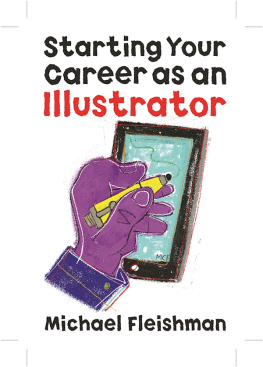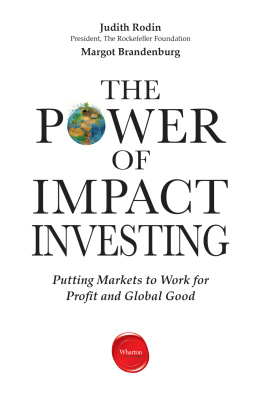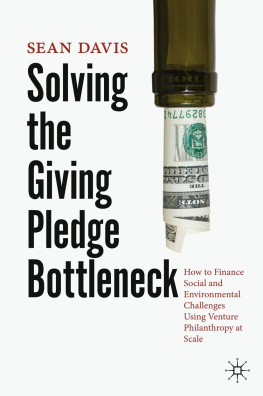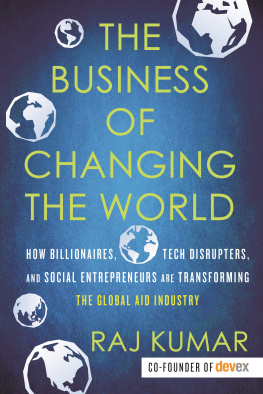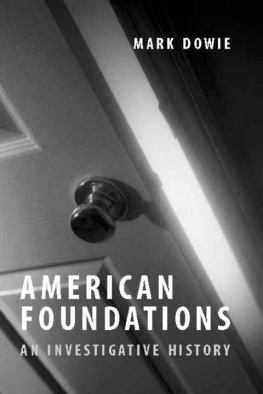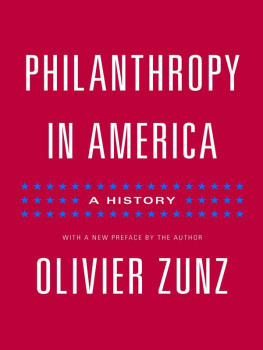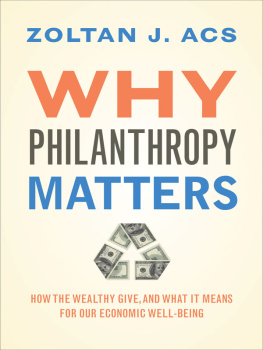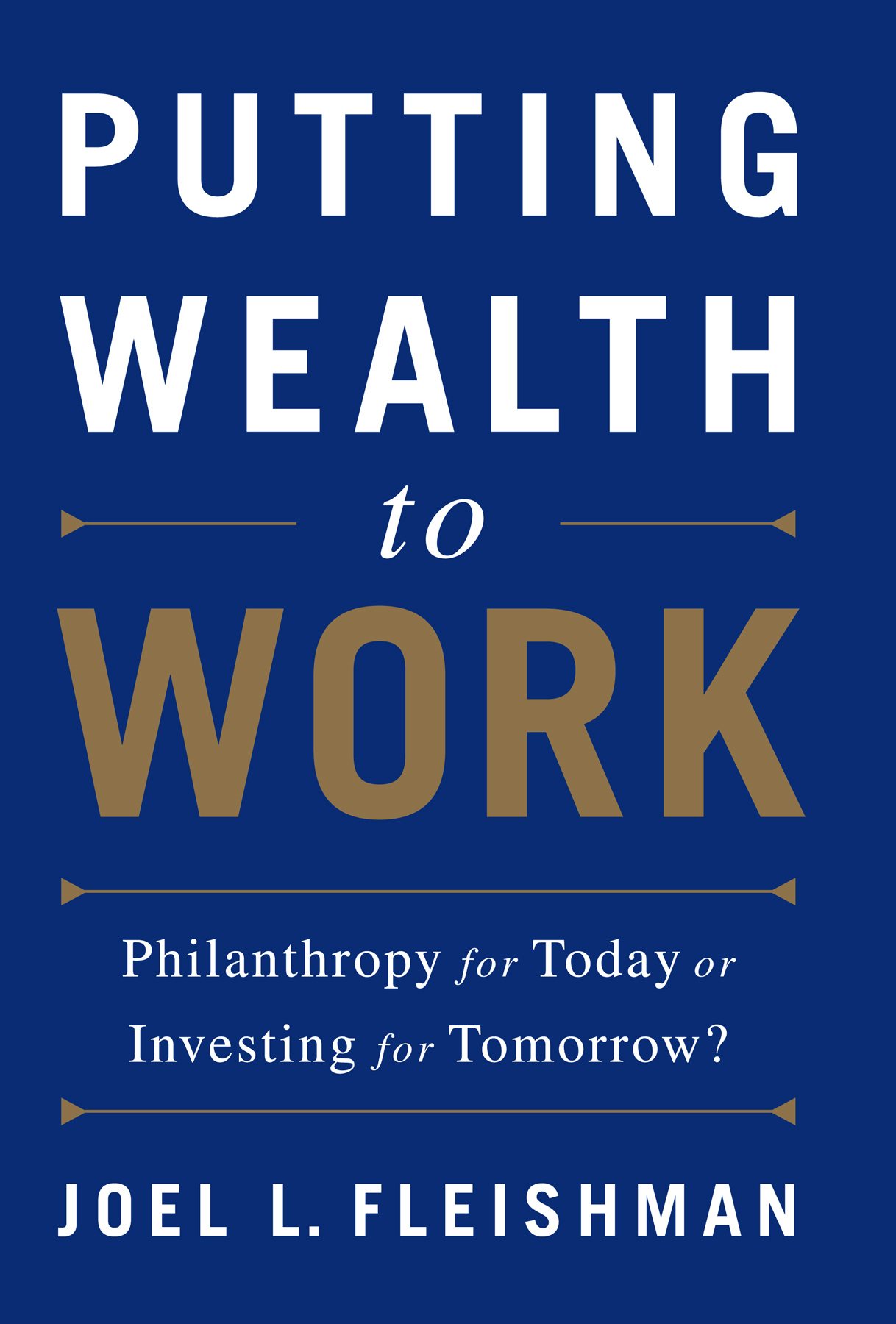Copyright 2017 by Joel L. Fleishman
Hachette Book Group supports the right to free expression and the value of copyright. The purpose of copyright is to encourage writers and artists to produce the creative works that enrich our culture.
The scanning, uploading, and distribution of this book without permission is a theft of the authors intellectual property. If you would like permission to use material from the book (other than for review purposes), please contact permissions@hbgusa.com. Thank you for your support of the authors rights.
Published by PublicAffairs, an imprint of Perseus Books, LLC, a subsidiary of Hachette Book Group, Inc.
The publisher is not responsible for websites (or their content) that are not owned by the publisher.
Library of Congress Cataloging-in-Publication Data has been applied for.
Joel L. Fleishman adroitly marshals his remarkable expertise and experience to provide actionable insights about the most important, contentious issues in twenty-first-century philanthropy. As philanthropy grows in size and significance, this book is a tremendous resource for donors, for those who are considering philanthropy, and for philanthropy professionals.
Melissa A. Berman, president and CEO of Rockefeller Philanthropy Advisors
The vast amount of wealth directed toward social purposes by private individuals through their foundations has quietly altered the landscape of the post-1990 world. Joel L. Fleishman is our best historian of this development and our wisest assessor of its impact. Writing with an incomparable array of examples and his distinctive mix of generosity and shrewd discernment, Fleishman tells the story of this shift from its origins to the present day. Along the way, he gives a deeply thoughtful answer to the question facing any would-be philanthropist: Which does more good? A short-term attack on a problem in a single burst of energy? Or an effort with a far longer horizon?
Richard H. Brodhead, president of Duke University
A very valuable resource for those pondering whether to engage in limited life versus perpetual philanthropy. Joel L. Fleishman analyzes the various factors that need to be considered in making those decisions and adduces myriad examples to illustrate his analysis. Although Fleishman argues in favor of perpetuity, even those choosing otherwise will benefit from his efforts to tease out and test the strength of the relevant arguments on both sides of the question.
Harvey P. Dale, founding president of the Atlantic Philanthropies and university professor of philanthropy and the law at New York University
Joel L. Fleishmans meticulously researched book, full of many supporting case examples, outlines why the type of foundation you use to put your wealth to work, and its duration, should be defined by and aligned with your underlying philanthropic objectives; there is no absolute right answer.
Steven A. Denning, chairman of General Atlantic
At no point in the hundred or so year history of organized philanthropy has there been such unprecedented growth in both dollars, participants, options, and opportunities. And no book captures this dynamic moment in time so compellingly and completely as Putting Wealth to Work: Philanthropy for Today or Investing for Tomorrow? It is all here: from the rationale for the tax exemption to values-based missions, the variety of nonprofit and for-profit giving vehicles to impact investing, to a new era of collaborations and a reframed focus on communications and what it means to be effective. Joel L. Fleishman saves his most significant inquiry for what may be the trend likely to have the most enduring impact: whether a foundation should exist in perpetuity or for a more defined and limited period of time. Rigorous research is complemented by historical detail, anecdotes, and personal insights. Bold (often courageous) commentaryoffered in a spirit of inquiry and humilityencourages readers to a more fulsome and thoughtful consideration of lifespan. Happily, Fleishman has no patience for a choice born of complacency or control, timidity or trend. He offers commendable examples of both the perpetual and the limited life foundation. But, in making our own choice, he urges us to give serious attention to our goals for philanthropic impact and governance participation for the near and long-term. Putting Wealth to Work is a must-read for anyone who gives, advises, and cares about the future of philanthropy. It is more than evident that Mr. Fleishman cares deeply about that future and, for that, I am both grateful and inspired.
Virginia Esposito, president of the National Center for Family Philanthropy
Joel L. Fleishman is a leading scholar of philanthropy. He is also a practitioner who has lead a major limited life foundation and been an advisor to major perpetual foundations. Drawing on that deep experience, he articulates a vision of American philanthropy that has room for both but cautions against the current trend of new wealth to give while living. He makes a solid case for the continued relevance of perpetual foundations based on deep evidence they continue to matter in confronting the worlds most pressing problems.
Jonathan F. Fanton, president of the American Academy of Arts & Sciences
Putting Wealth to Work illuminates a vigorous debate among twenty-first-century philanthropists: fund solutions to todays problems or leave a legacy for the future? With this question in mind, Joel L. Fleishman takes his readers on a highly informative guided tour of the American philanthropic sector. His deep mastery of the subject shines throughout as he introduces his readers to the organizations that are changing the landscape of American philanthropy and giving donors more options than ever to invest in social change. Putting Wealth to Work is a must-read for anyone who wants to understand Americas philanthropic sector and the many ways its shaping our world. If further confirmation were needed that Fleishman is the sage of American philanthropy, this is it.
Paul Grogan, president of the Boston Foundation
Joel L. Fleishmans latest book will be useful to individuals and families seeking to design and execute on their philanthropic goals and strategies, including the determination of whether to give their wealth while living, versus over time after their death.
Hubert Joly, chairman and CEO of Best Buy
Deftly, and with ample evidence, Joel L. Fleishman shows that either giving while living or establishing a perpetual foundation can have significant impacts for good. Even for those of us who cant create our own foundations, his book provides multiple insights into the comparative benefits of diverse ways of giving, and the possible targets of our philanthropy.
Nannerl O. Keohane, former president of Wellesley College and Duke University
Based on a lifetime of working in philanthropy and researching philanthropy, Professor Fleishman has written a tour de force that resolves historical and analytic misconceptions and provides a new starting point for anyone who wants to understand philanthropy in the United States.
Professor Michael Klausner, Stanford University


